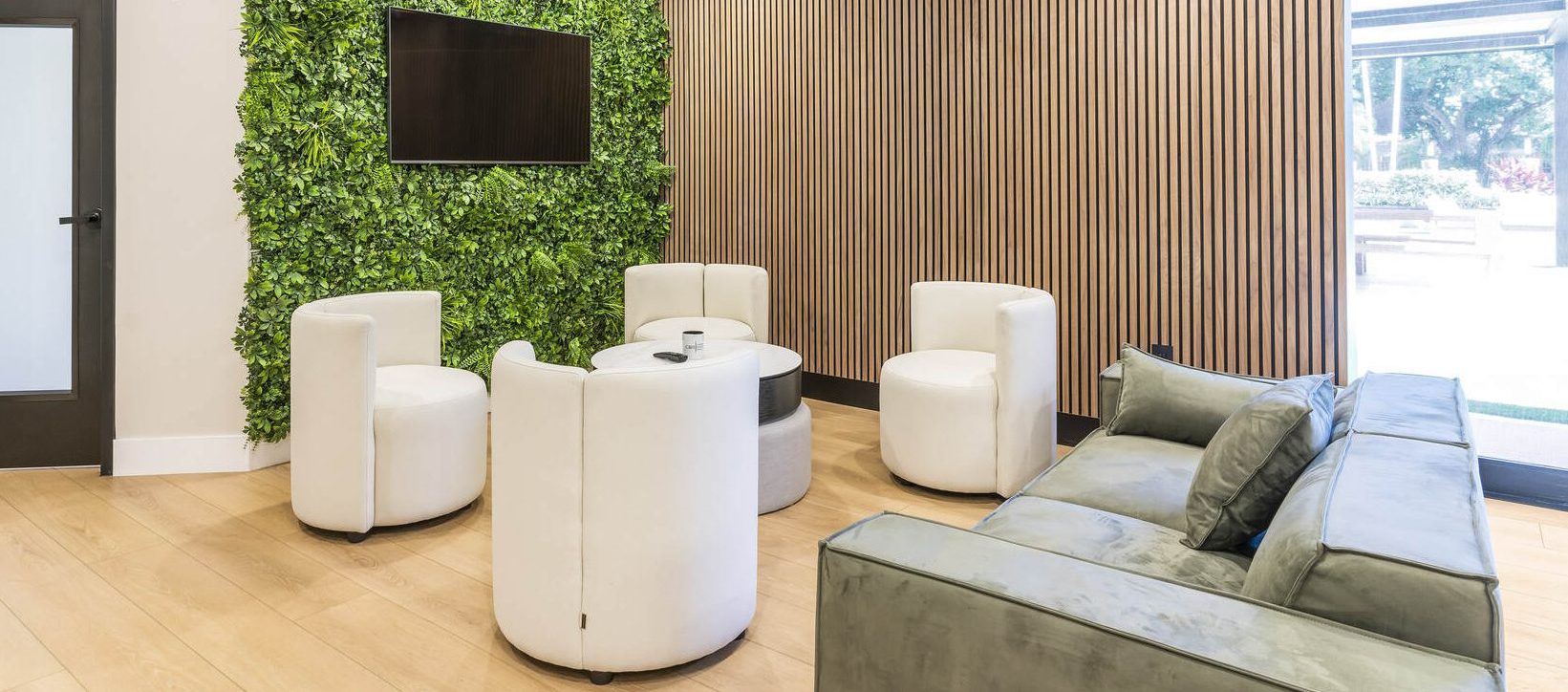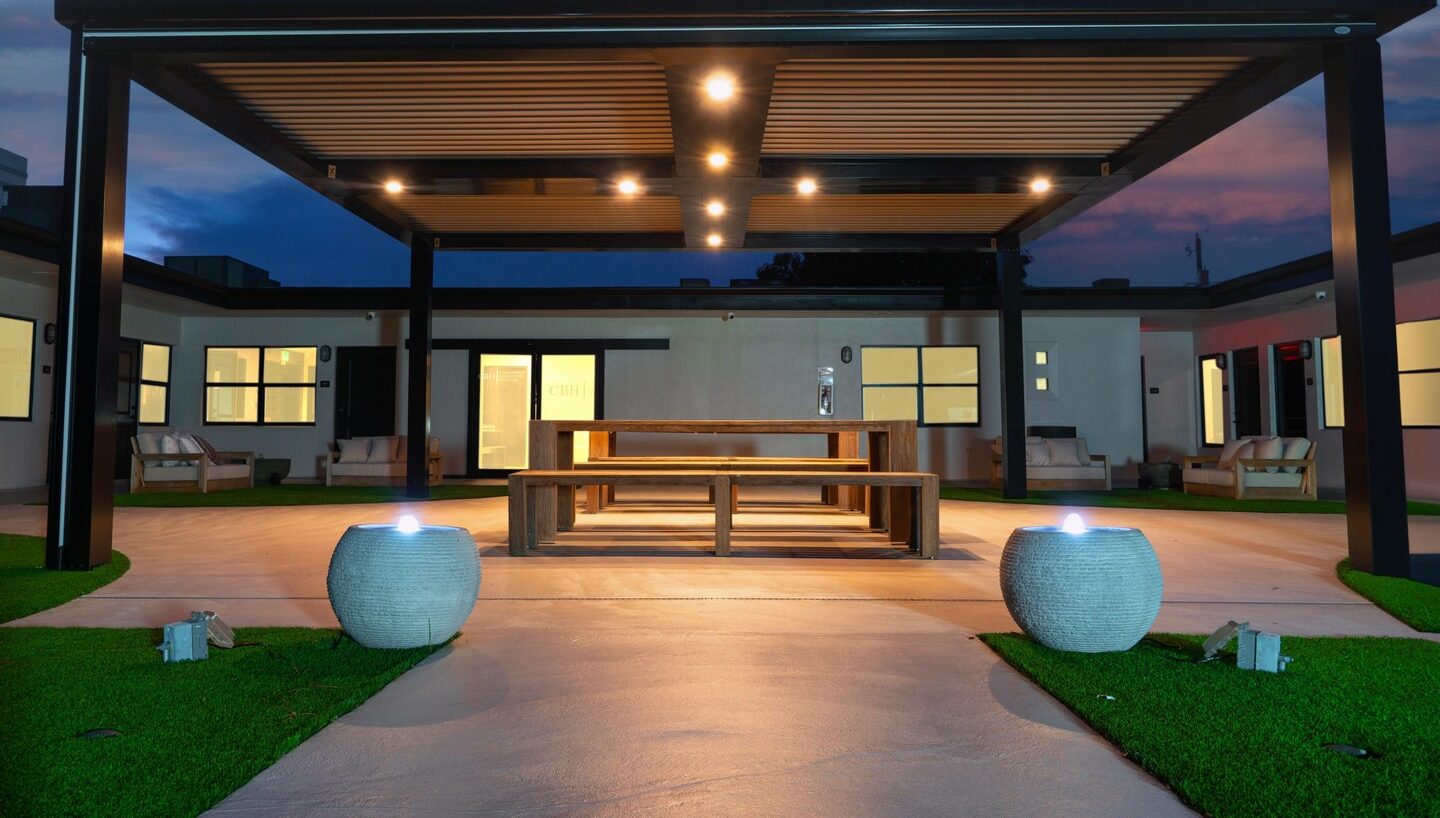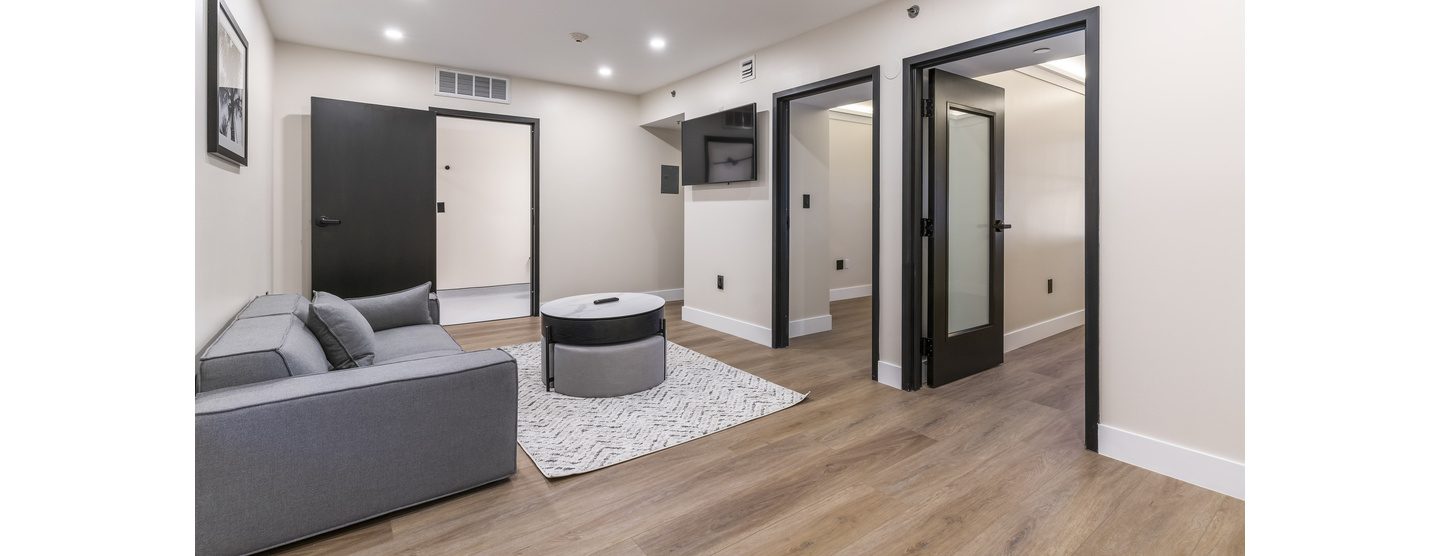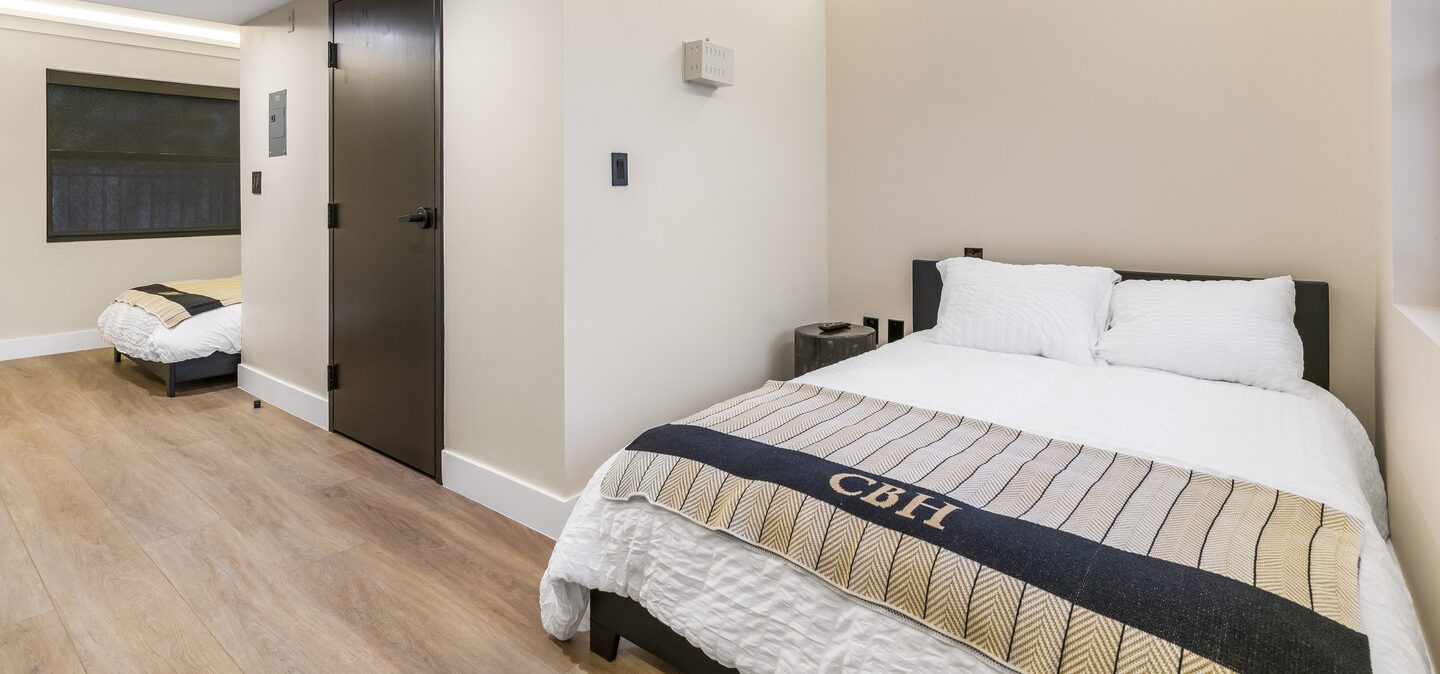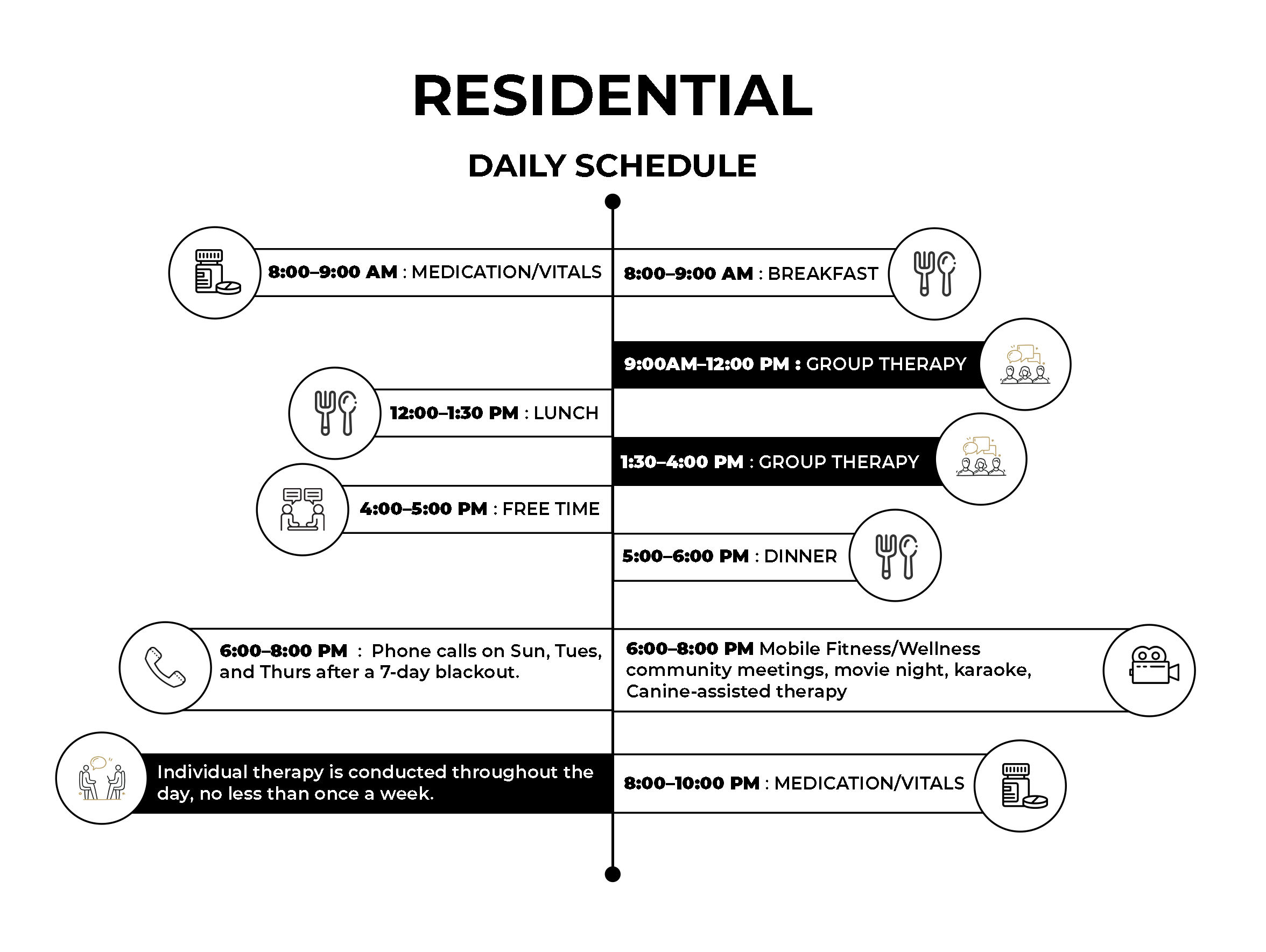What Is a Residential Treatment Program?
Residential treatment, also known as inpatient treatment, is a comprehensive, intensive form of therapy designed for individuals with significant mental health issues, substance use disorders, or other behavioral problems.
It involves staying at a treatment facility for a certain period, typically ranging from a few weeks to a month.
Key features of residential treatment include:
- 24-hour supervision and support
- Structured environment with schedule daily activities and schedule
- Intensive therapy such as individual and group therapies
- Medical and psychiatric care
- Safe and controlled setting
- Focus on recovery without distractions
- Holistic approaches such as meditation, art therapy
Who Might Need Residential Treatment?
Residential treatment is typically recommended for individuals who require a more intensive and structured therapeutic environment than what outpatient or intensive outpatient programs can provide.
People who might need residential treatment include:
- Individuals with severe mental health disorders: Those who are experiencing severe symptoms of mental health conditions like major depression, bipolar disorder, schizophrenia, or severe anxiety disorders may benefit from the structured environment of residential treatment.
- People with chronic substance use issues: Individuals struggling with long-term or severe addiction, especially those who have not been successful with outpatient treatments or have a history of relapse, might find residential treatment more effective.
- People with dual diagnoses: Individuals who have co-occurring mental health and substance use disorders often benefit from the comprehensive approach of residential treatment programs that can address both issues simultaneously.
- Individuals with a high risk of harm: People who pose a danger to themselves or others, such as those with severe suicidal ideation or aggressive behaviors, may need the safety and supervision provided by residential treatment.
- People who lack a supportive home environment: Individuals who do not have a stable or supportive home environment, which is crucial for recovery, might find the controlled environment of a residential program more conducive to their treatment.
- Patients with a history of treatment non-compliance: People who have had difficulty following treatment plans or medication regimens in less structured settings may find more success in a residential program’s intensive and controlled environment. This setting provides the necessary structure and support to help maintain consistency in treatment and medication management.
- Individuals with complex or refractory conditions: Those who have complex, multifaceted disorders or conditions that have not responded to previous treatments might require the specialized and intensive care available in residential treatment.
Benefits of Residential Treatment
One of the biggest benefits of seeking an inpatient program is that you can receive well-rounded, integrated care. It’s incredibly freeing to remove yourself from your previous environment and get away from toxic people and triggering places. Having this distance is enough for some people to gain a new perspective on their recovery.
Other benefits of residential treatment include:
- Structured environment: Residential treatment provides a controlled, structured environment, free from the distractions and triggers of everyday life. This setting allows individuals to focus solely on their recovery.
- 24/7 medical supervision and support: Continuous access to medical professionals and therapists ensures that individuals receive the necessary care and support. This is especially crucial for those who may experience withdrawal symptoms or need constant mental health support.
- Comprehensive treatment plans: These programs typically offer personalized treatment plans that address not only the addiction or mental illness but also any underlying issues. This holistic approach can include therapy, medical treatment, nutritional support, and physical fitness programs.
- Therapeutic community: Living in a community with others who are facing similar challenges provides a support network of peers. This community aspect can enhance emotional support, understanding, and a sense of belonging.
- Skill building and education: Many programs include educational sessions and skill-building activities to help individuals learn how to cope with stress, avoid relapse, and manage their mental health effectively.
- Family involvement and therapy: Residential treatment often involves family members in the recovery process through counseling and educational programs, helping to repair and strengthen family dynamics.
Explore Our Residential Treatment Program at Compassion Behavioral Health
Compassion Behavioral Health (CBH) is a renowned mental health and substance abuse treatment center in South Florida, offering personalized and sustainable rehabilitation programs for both men and women.
Our mission is to assist individuals from a variety of backgrounds in battling addiction and moving towards more rewarding and healthier lives.
By taking part in our residential treatment program you can expect to:
- Be surrounded by a supportive community
- Receive around-the-clock support from licensed nurses and staff
- Reside in a distraction-free, safe environment
- Remove yourself from triggers and toxic people/situations
- Work on your mental illness and addiction simultaneously
- Have a wide range of tools and therapies at your disposal
- Develop friendships with sober supportive individuals
- Practice a new, healthy schedule
Our facilities are supported by a team of caring and skilled professionals. These experts are not only proficient in their specialties but also deeply committed to offering empathetic care.
We acknowledge the critical importance of family in the recovery journey. Therefore, our program includes extensive family involvement. Our approach goes beyond treating our patients; we aim to create a strong support system post-treatment that includes family therapy.
Our commitment to support goes beyond our clinical environment. We continue to provide guidance and support even after our clients start their path with Compassion Behavioral Health. Our goal is to excel in delivering exceptional treatment and creating a nurturing environment for our clients and their families.


